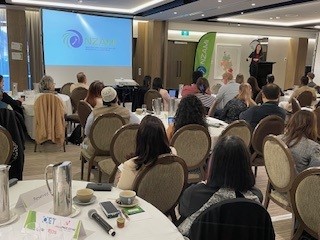
I recently took up the role of Chairman of the New Zealand Association for Migration and Investment, the longest-running industry association for NZ migration professionals. Among other things, NZAMI advocates on matters of importance to immigration lawyers and advisers, and to their clients.
The Association held its 35th Anniversary Conference last Friday. This included a keynote address from the Minister of Immigration, Hon. Erica Stanford; and the Deputy Secretary Immigration, Alison McDonald, spoke on areas of concern about Immigration New Zealand’s performance. Both speakers readily acknowledged the need for improvement both in visa policy settings and the timeliness of decisionmaking.
Here are some of the issues which came up on the day:
Migrant Exploitation Visas: Just before the Conference, the Minister’s office announced changes to the Migrant Exploitation Protection Visa (MEPV) which claimed to give migrants more certainty and reduce the risk of being exploited further. This was mainly done by removing the ability to get a second 6-month MEPV when the first MEPV expired. When interviewed by TV1 News, I was sceptical about this because I believe that it will leave migrant workers who have left bad working conditions more vulnerable than ever.
Accredited Employer Work Visas: The AEWV scheme is currently being reviewed, and the Minister was keen to see quicker decisions at each stage of the “3-gate” process of Employer Accreditation, Job Check and Visa Application. She wants to see if there is a way to simplify the process for good employers so that they can move through it more efficiently, while identifying the relatively few bad actors who have given the policy, and the country, a bad name. The airing of this topic on the day was covered by Radio New Zealand.
NZAMI has responded to the invitation to join in the consultation round by submitting a paper which strongly argues for a move away from tying Work Visas to specific employers, because it has been a key reason for exploitation of migrants. This is an approach that was recommended by the Productivity Commission in 2021, as well as Australian labour market research from 2017.
Investor Residence: Ms Stanford described the “golden goose” promised by the Active Investor Plus programme as more of a “lame duck”. It simply does not deliver enough inflow of foreign capital which New Zealand desperately needs to grow its capabilities.
A consultation round has just been opened, to which NZAMI’s Policy Committee is contributing a submission. Again, we are calling for a significant rethink of how Investor Residence should work, so that it will attract high net worth applicants rather than discouraging them.
As if the last couple of years hasn’t been enough, a good deal more change is in the pipeline for New Zealand immigration. Laurent Law will continue to stay abreast of these developments so that we can help those who come to us for assistance.